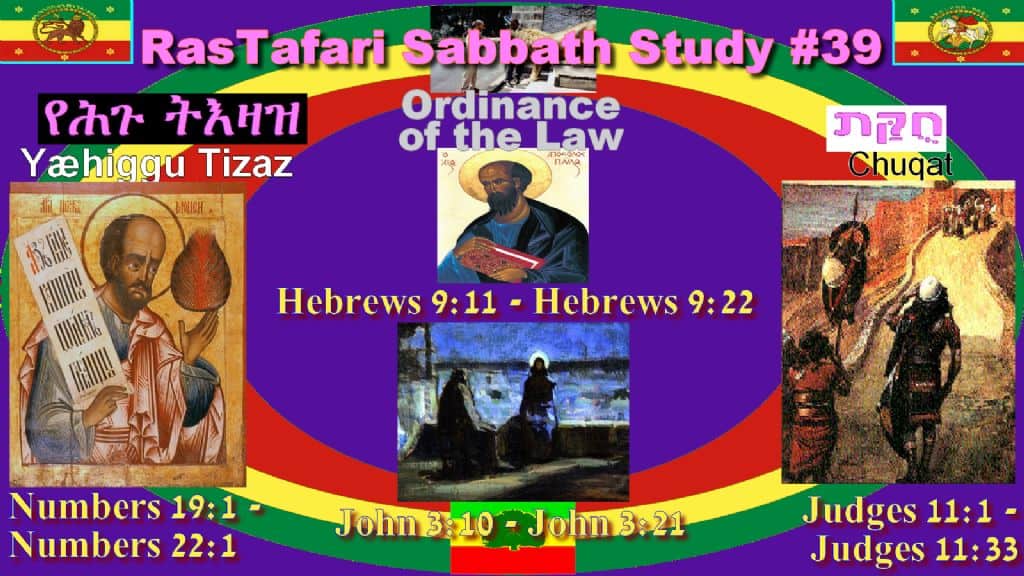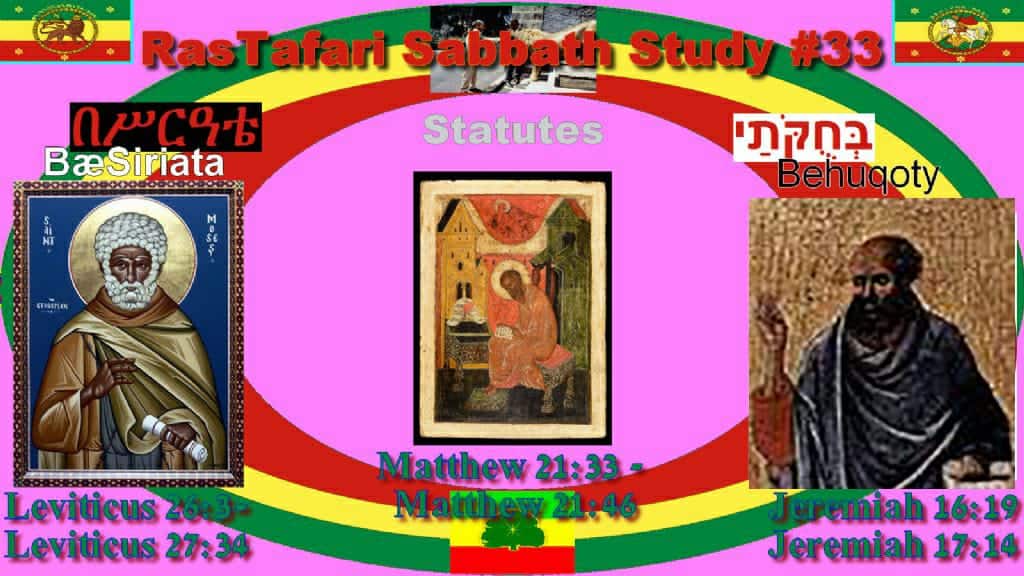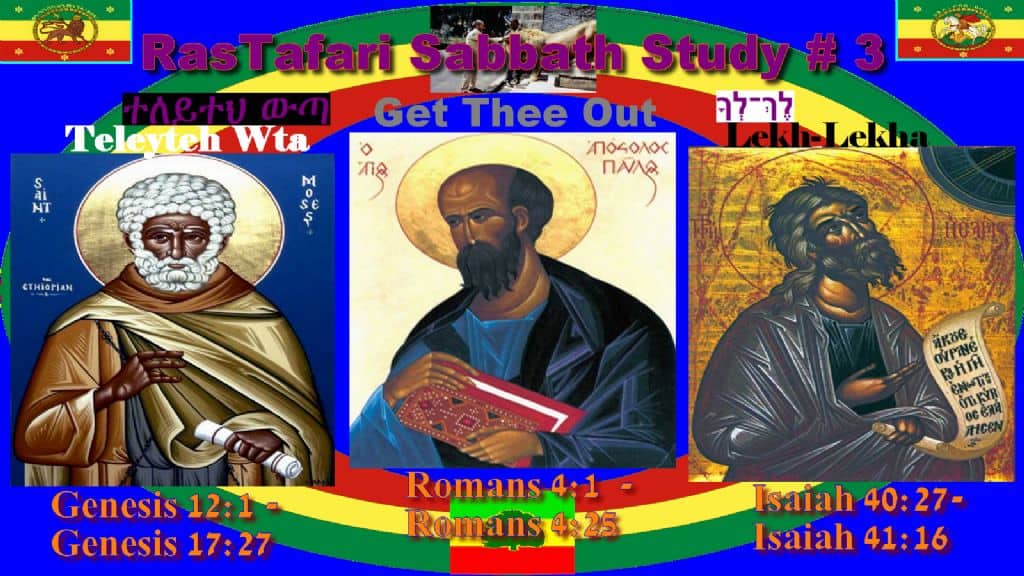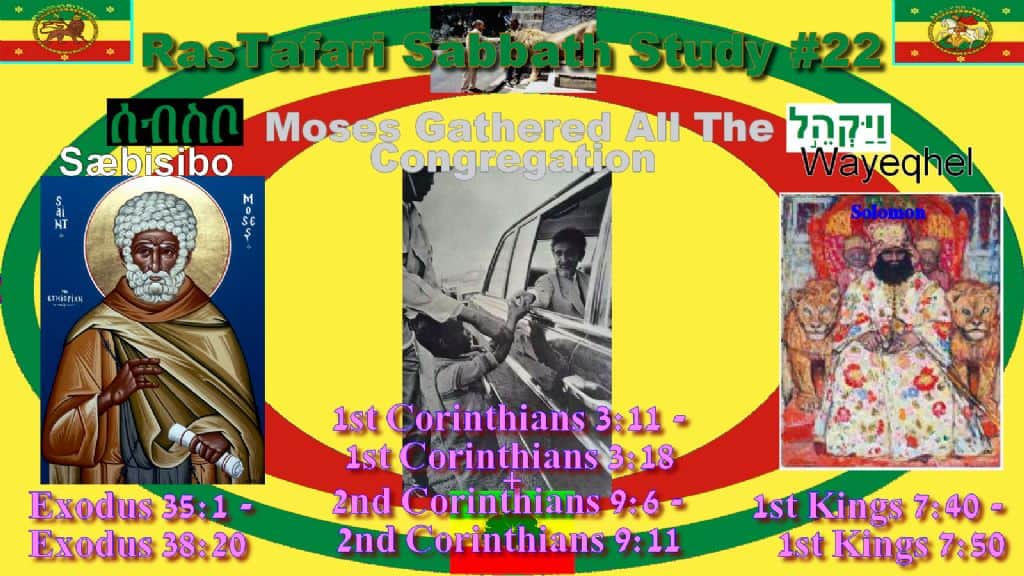This Week's Portion #39
Chukat | חוקת | "Decree of/Statute" የሕጉ ትእዛዝ ይህ ነው | yeH’ggu t’Izaz [y’h’new]
*For a PDF version of All the Torah Portions Schedule, click here to download!
1. Torah Reading
2. Prophets Reading
Judges 11:1-33
3. New Testament Reading
Hebrews 9:11-28; John 3:10-21
Portion Outline - TORAH
- Numbers 19:1 | Ceremony of the Red Heifer
- Numbers 20:1 | The Waters of Meribah
- Numbers 20:14 | Passage through Edom Refused
- Numbers 20:22 | The Death of Aaron
- Numbers 21:1 | The Bronze Serpent
- Numbers 21:10 | The Journey to Moab
- Numbers 21:21 | King Sihon Defeated
- Numbers 21:33 | King Og Defeated
Portion Outline - PROPHETS
- Judges 11:1 | Jephthah
- Judges 11:29 | Jephthah's Vow
Portion Study Book Download & Summary
 BAMIDBAR Hebrew Book of Numbers - Torah Portion Vol.4 (FREE PDF)
BAMIDBAR Hebrew Book of Numbers - Torah Portion Vol.4 (FREE PDF)
Chukat is the thirty-ninth reading from the Torah. The word chukat (חוקת) means “statute.” The name is derived from the second verse of the reading: “This is the statute of the law which the LORD has commanded” (Numbers 19:2). Chukat presents the mysterious laws of the red-heifer ceremony for purification after contact with human death. This reading also contains the story of Moses striking the rock, the stories of the deaths of Aaron and Miriam and the wars with the Amorites. The portion concludes with the host of Israel encamping on the edge of the Promised Land.
Portion Commentary
Snake Bite
Thought for the Week:
The problem with complaining is that God is listening.
Commentary:
The LORD sent fiery serpents among the people and they bit the people, so that many people of Israel died. (Numbers 21:6)
God hears our words and weighs our hearts. As the Israelites complained about the daily provision of manna, God heard their words and sent a punishment of poisonous snakes. Why did God use snakes to punish Israel?
Rashi explains that God chose snakes for two reasons. The serpent in the Garden of Eden was punished for speaking words of slander against God. God sent the serpent, who was punished for speaking slander, to punish those who were guilty of speaking slander. The second reason was that the serpent had been cursed to eat dust all the days of its life. God sent the serpent, who was punished by being given a diet of dust, to punish those who complained about their food.
When we allow ourselves to slip into self-pity and we give expression to a critical spirit, we are already victims of the evil one. He is a professional slanderer, the accuser of the brethren and the origin of rebellion against God. He was the very first to express discontentment with the lot in life God had assigned to him. When we show ingratitude toward God and complain about His ways, we are speaking the serpent's native tongue. His venom is already poisoning our hearts.
The solution to the problem is repentance. The Israelites went to Moses and said, "We have sinned, because we have spoken against the LORD and you; intercede with the LORD, that He may remove the serpents from us" (Numbers 21:7). Their words encapsulate the gospel message. Yeshua is our Moses. The serpent is the devil. We are the sinners. If we want to be healed and delivered from the serpent, we need to repent, confess our sins and seek forgiveness through Yeshua.
As soon as the Israelites asked Moses for forgiveness, he interceded on their behalf. Rashi points to this as an example for how we should also be quick to forgive others. He says, "From this we learn that a person who is asked for forgiveness should not be so cruel as to withhold forgiveness." Disciples worthy of Yeshua will be quick to extend forgiveness even to those who have spoken derisively against them or humiliated them.
Moses interceded, and the LORD provided an antidote.


![Chukat | חוקת | "Decree of/Statute" የሕጉ ትእዛዝ ይህ ነው | yeH’ggu t’Izaz [y’h’new] Chukat | חוקת | "Decree of/Statute" የሕጉ ትእዛዝ ይህ ነው | yeH’ggu t’Izaz [y’h’new]](https://rastafarigroundation.org/wp-content/uploads/2019/03/Discipleship-Radi0-RasTafari-Bible-Readings-39_1.jpg)
![Chukat | חוקת | "Decree of/Statute" የሕጉ ትእዛዝ ይህ ነው | yeH’ggu t’Izaz [y’h’new] Chukat | חוקת | "Decree of/Statute" የሕጉ ትእዛዝ ይህ ነው | yeH’ggu t’Izaz [y’h’new]](https://rastafarigroundation.org/wp-content/uploads/2019/03/Discipleship-Radi0-RasTafari-Bible-Readings-39_2.jpg)
![Chukat | חוקת | "Decree of/Statute" የሕጉ ትእዛዝ ይህ ነው | yeH’ggu t’Izaz [y’h’new] Chukat | חוקת | "Decree of/Statute" የሕጉ ትእዛዝ ይህ ነው | yeH’ggu t’Izaz [y’h’new]](https://rastafarigroundation.org/wp-content/uploads/2019/03/Discipleship-Radi0-RasTafari-Bible-Readings-39_3.jpg)
![Chukat | חוקת | "Decree of/Statute" የሕጉ ትእዛዝ ይህ ነው | yeH’ggu t’Izaz [y’h’new] Chukat | חוקת | "Decree of/Statute" የሕጉ ትእዛዝ ይህ ነው | yeH’ggu t’Izaz [y’h’new]](https://rastafarigroundation.org/wp-content/uploads/2019/03/Discipleship-Radi0-RasTafari-Bible-Readings-39_4.jpg)
![Chukat | חוקת | "Decree of/Statute" የሕጉ ትእዛዝ ይህ ነው | yeH’ggu t’Izaz [y’h’new] Chukat | חוקת | "Decree of/Statute" የሕጉ ትእዛዝ ይህ ነው | yeH’ggu t’Izaz [y’h’new]](https://rastafarigroundation.org/wp-content/uploads/2019/03/Discipleship-Radi0-RasTafari-Bible-Readings-39_5.jpg)
![Chukat | חוקת | "Decree of/Statute" የሕጉ ትእዛዝ ይህ ነው | yeH’ggu t’Izaz [y’h’new] Chukat | חוקת | "Decree of/Statute" የሕጉ ትእዛዝ ይህ ነው | yeH’ggu t’Izaz [y’h’new]](https://rastafarigroundation.org/wp-content/uploads/2019/03/Discipleship-Radi0-RasTafari-Bible-Readings-39_6.jpg)
![Chukat | חוקת | "Decree of/Statute" የሕጉ ትእዛዝ ይህ ነው | yeH’ggu t’Izaz [y’h’new] Chukat | חוקת | "Decree of/Statute" የሕጉ ትእዛዝ ይህ ነው | yeH’ggu t’Izaz [y’h’new]](https://rastafarigroundation.org/wp-content/uploads/2019/03/Discipleship-Radi0-RasTafari-Bible-Readings-39_7.jpg)
![Chukat | חוקת | "Decree of/Statute" የሕጉ ትእዛዝ ይህ ነው | yeH’ggu t’Izaz [y’h’new] Chukat | חוקת | "Decree of/Statute" የሕጉ ትእዛዝ ይህ ነው | yeH’ggu t’Izaz [y’h’new]](https://rastafarigroundation.org/wp-content/uploads/2019/03/Discipleship-Radi0-RasTafari-Bible-Readings-39_8.jpg)






































































































